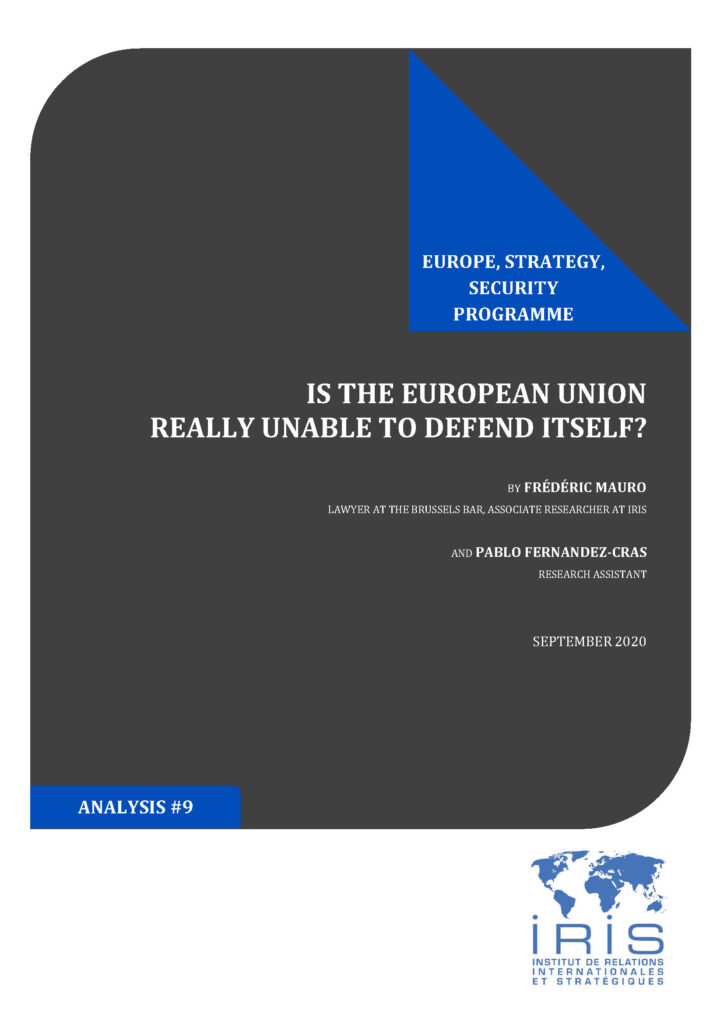Notes / Europe, Union européenne, OTAN
8 septembre 2020
Is the European Union really unable to defend itself?

The possibility of an autonomous European Union defence has never been as intensely debated as in the past few years.
It is, however, not a new idea and has been adorned with many names since the 1998 St Malo declaration : “capacity for autonomous action”, “operational capacity drawing on civilian and military assets” (art. 42.1 Treaty on European Union – TEU), “Common Security and Defence Policy” (CSDP), “Common defence” (art. 42.2 TEU), the much-touted “Strategic Autonomy” and lastly even the controversial “European army” mentioned by Orban, Macron, Merkel and Sanchez since 2016. Naming aside, the substance of this idea is quite simply that Europeans should be capable of managing crises in their neighbourhood that impact their security directly or indirectly and in which their American allies have no desire to get involved; and maybe to do more overall – within or without the NATO framework.
It is also a topical idea, its relevance confirmed by contemporary conflicts such as the rampant war against jihadists in the Sahel, the proxy war in Libya or the open war in Syria, which all affect European security and stability on many levels. In the latter, Europeans would be within their rights to blame Mr. Trump for having abandoned the Kurds to their fate and pivoting all of a sudden towards Turkey, leaving French and British special forces on the ground in peril. However, before pointing fingers at the American president, they should blame themselves for their inability to deploy a thousand meagre personnel 160 km east of Cyprus.
Despite such obvious shortcomings, European strategic autonomy had not garnered consensus, let alone unanimous support across the Union, before the Coronavirus crisis. As best captured by Franke and Varma1, there were significant differences of opinion between Member States about the operational level that such autonomy should prioritize (decision-making, information and autonomy of action), its geographical reach, and even about its importance for Member States’ security and foreign policy…


